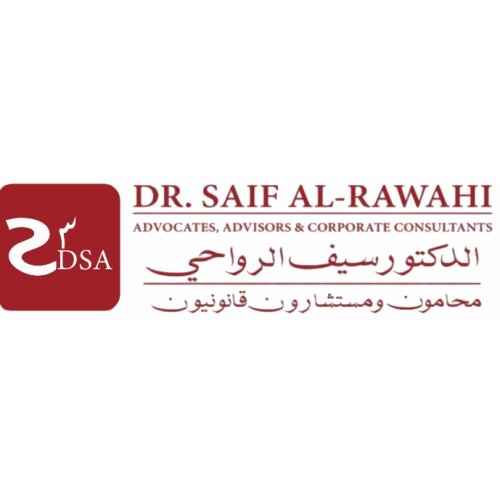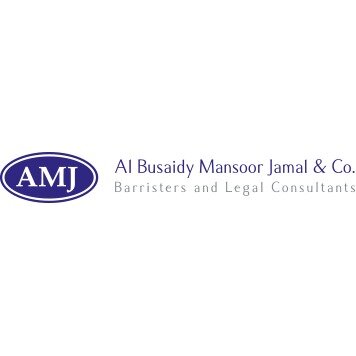Best Energy, Environment & ESG Lawyers in Muscat
Share your needs with us, get contacted by law firms.
Free. Takes 2 min.
List of the best lawyers in Muscat, Oman
About Energy, Environment & ESG Law in Muscat, Oman
Energy, Environment & ESG (Environmental, Social, and Governance) law in Muscat, Oman governs the legal aspects of how businesses and individuals interact with natural resources, address climate and sustainability concerns, and align with global standards of responsible business conduct. Oman is a country rich in oil and gas, yet actively moving towards diversification of its energy sources and increased attention to environmental sustainability. ESG considerations are gaining prominence across industries as regulators, investors, and stakeholders emphasize responsible environmental management, social responsibility, and strong governance practices.
Why You May Need a Lawyer
People and businesses in Muscat may require legal help in the Energy, Environment & ESG field for a variety of reasons. Common situations include obtaining permits for energy projects, ensuring compliance with environmental regulations, addressing disputes involving pollution or land use, and managing corporate disclosures related to sustainability. Companies may also need support when dealing with government investigations or inspections, negotiating renewable energy contracts, or incorporating ESG criteria into corporate policies. Legal advice is especially valuable during mergers, acquisitions, or financing projects where due diligence on environmental liabilities and ESG performance is essential.
Local Laws Overview
Energy and environment regulations in Muscat are primarily governed by national laws and enforced through local authorities. The key legal framework includes the Basic Environmental Law (Royal Decree 114/2001), which sets out broad environmental protection principles. Additional regulations address emissions, waste management, water usage, and land rehabilitation. The Ministry of Energy and Minerals is the primary authority for energy regulations, including oil, gas, and renewables. Oman's Vision 2040 further emphasizes commitments to sustainability, renewable energy, and responsible governance. Adherence to ESG principles is gaining momentum, particularly among publicly listed companies and multinational enterprises, with growing official guidance on mandatory disclosures and reporting for environmental and social impact.
Frequently Asked Questions
What are the main environmental laws in Oman relevant to Muscat?
The Basic Environmental Law (Royal Decree 114/2001) is the foundational statute. Other important regulations cover air and water pollution, hazardous waste, and environmental permits.
Who regulates the energy sector in Muscat?
The Ministry of Energy and Minerals oversees the entire energy sector, including licensing, compliance, and supervision of oil, gas, and renewable energy activities.
How can I obtain environmental permits for my business?
Environmental permits in Muscat are issued by the Environment Authority. The application process typically requires submitting environmental impact assessments and fulfilling specific compliance requirements.
What is ESG, and why does it matter in Oman?
ESG stands for Environmental, Social, and Governance. It represents standards for responsible business conduct. In Oman, these are increasingly important for legal compliance, access to finance, and reputation management.
Are there specific regulations for renewable energy projects?
Yes, there are dedicated guidelines and policies for the development and operation of renewable energy projects, including solar and wind, which encourage foreign investment while ensuring environmental protection.
What are the penalties for violating environmental regulations?
Penalties may include fines, suspension of business licenses, remediation orders, or in severe cases, criminal liability. Enforcement is carried out by the Environment Authority and may also result in reputational damage.
Is environmental insurance mandatory in Oman?
While not universally mandatory, certain high-risk activities may require environmental insurance as part of the licensing and permitting process.
How does Oman approach climate change and carbon emissions?
Oman has ratified key international conventions on climate change and is developing strategic frameworks for reducing carbon emissions, promoting renewable energy, and encouraging sustainable practices.
Are there reporting requirements for ESG in Muscat?
Large companies, particularly those listed on the Muscat Stock Exchange, may be required to disclose ESG-related information as part of their annual reporting. Voluntary reporting is encouraged for others.
What legal recourse do communities have if affected by pollution?
Affected communities can file complaints with the Environment Authority and may pursue legal claims for damages or remedial action if their health, property, or livelihoods are negatively impacted by pollution.
Additional Resources
- Ministry of Energy and Minerals: Oversees all energy-related activities, licensing, and compliance. - Environment Authority: Responsible for issuing environmental permits, enforcement, and monitoring. - Muscat Municipality: Involved in local enforcement of environmental regulations within city limits. - Oman Chamber of Commerce and Industry: Provides guidance for businesses on sustainability and ESG practices. - Oman Vision 2040 Office: Offers insights on national sustainability goals and strategic planning.
Next Steps
If you require legal assistance in the field of Energy, Environment & ESG in Muscat, you should start by gathering all relevant documentation and details about your situation. Identify the specific area where you need help, such as permitting, compliance, disputes, or ESG reporting. It is advisable to consult a lawyer or legal advisor with experience in Omani energy, environmental, or ESG law. Prepare clear questions for your legal consultation and be ready to provide supporting information. Engaging a qualified professional ensures you receive tailored advice that complies with local regulations and helps you navigate complex legal challenges effectively.
Lawzana helps you find the best lawyers and law firms in Muscat through a curated and pre-screened list of qualified legal professionals. Our platform offers rankings and detailed profiles of attorneys and law firms, allowing you to compare based on practice areas, including Energy, Environment & ESG, experience, and client feedback.
Each profile includes a description of the firm's areas of practice, client reviews, team members and partners, year of establishment, spoken languages, office locations, contact information, social media presence, and any published articles or resources. Most firms on our platform speak English and are experienced in both local and international legal matters.
Get a quote from top-rated law firms in Muscat, Oman — quickly, securely, and without unnecessary hassle.
Disclaimer:
The information provided on this page is for general informational purposes only and does not constitute legal advice. While we strive to ensure the accuracy and relevance of the content, legal information may change over time, and interpretations of the law can vary. You should always consult with a qualified legal professional for advice specific to your situation.
We disclaim all liability for actions taken or not taken based on the content of this page. If you believe any information is incorrect or outdated, please contact us, and we will review and update it where appropriate.
Browse energy, environment & esg law firms by service in Muscat, Oman
Muscat, Oman Attorneys in related practice areas.

















